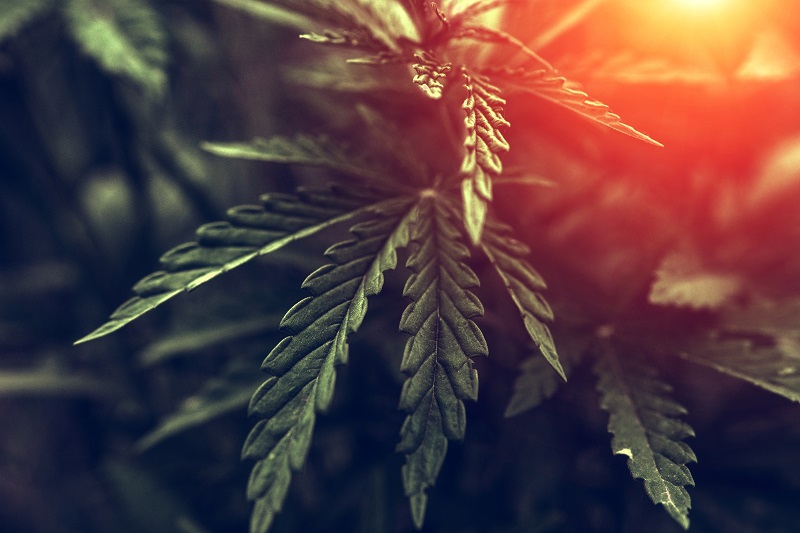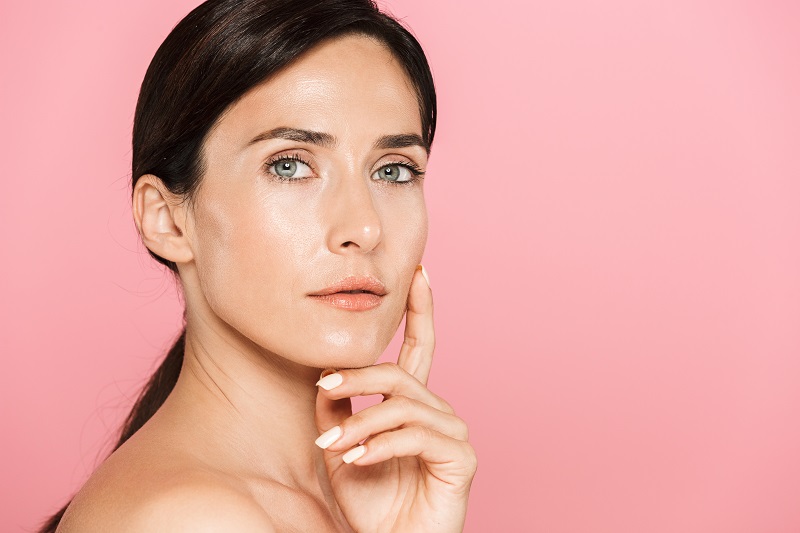Cannabinoid Products Are the Future of Dermatology

In the Farm Bill of 2018, a very significant move was made that ensured CBD or cannabidiol would no longer be treated with suspicion merely because it also comes from the same plant that yields marijuana. This bill removed hemp and derivatives of cannabis that have a low content of the compound that results in the ‘high’ from the Controlled Substances Act categorization of marijuana. In effect, the bill made it clear that in the absence of THC or delta-9-tetrahydrocannabinol or in derivatives where the THC content is negligible, that is, below 0.3%, there is no call to club the compounds with marijuana.
Later in 2018, the FDA also advanced via the generally Recognised as Safe process three hemp-derived foods; hulled hemp seed, hemp seed oil, hemp seed protein powder- these three products are now legally usable in the food supply in the U.S.
A CBD-based drug, Epidiolex, has also been approved by the FDA for the treatment of seizures. The active drug here being CBD, this approval opens the doorway for more CBD products to enter mainstream pharmaceuticals. It also helps cull away much of the misconception that muddies the waters surrounding CBD and CBD-based products for daily use.
What is most important in all of this is that the distinction between marijuana and hemp has been made at the CSA level. This, in turn, should help the common public understand that CBD or cannabidiol products need not be avoided merely because they come from the same plant family as marijuana. There is a clear difference between recreational marijuana and hemp-based CBD. The latter does not have any psychoactive effect and cannot produce a high, thanks to its negligible quantities of THC as the FDA clearly mentioned in its news release about the approval of Epidiolex.
CBD and skincare
As brands increasingly begin to use CBD in their product ranges, one development is happening rather subtly but surely. Until now, this Cannabis Sativa product has been extensively used in pain relief spray, pain relief roll-on, pain relief cream, and so on owing to the research that has indicated its great efficacy in pain management. However, in recent times, as the doubts about CBD are dispersed, and misconceptions are cleared out, more brands are beginning to use this plant derivative in other products, especially skincare ranges.
This is an inevitable outcome because CBD has been used across cultures across the globe for skincare since ancient times. In traditional medicine, it is quite a common thing to find mention of hemp-based derivatives, especially CBD, in many formulations that improve skin tone, safeguard skin against blemishes, correct skin problems, and so on. It is only in the recent past that the association with marijuana and mistaken belief that CBD may be psychoactive has caused many brands to steer clear of the product, fearing that the market may not accept it. This is changing now thanks to research that is being done with CBD and the favorable results of such research.
Why is CBD effective in dermatological formulations?
What most people do not know is that the human body has its own endocannabinoid system. This was discovered in the 1990s when the impact of Phytocannabinoids on the body was studied. The ECS receptors are found in both the central nervous system and the immune system, and apart from helping manage pain, these receptors work in many ways that result in better skin health. In particular, research shows that the ECS system maintains skin homeostasis. The release of keratins, control of inflammation, reduction of premature aging- all of these is controlled by the ECS system.
Cannabinoid-based dermatological formulations work so well because they dovetail into this ECS system of the human body, promote better functioning, and aid it in its tasks. Exogenous cannabinoids work on the CB1 and CB2 receptors on the ECS system. The CB1 receptor impacts the central/peripheral nervous systems, while the CB2 receptor impacts the immune system.
Studies have shown that the ECS system, when impaired in its functioning, results in many dermatological issues, including dermatitis, skin cancer, and psoriasis. This has prompted research into formulations that can work directly on the ECS system and correct the system from within. This is one reason why CBD has come into the spotlight now for its ability to work on the ECS system’s receptors in an effective way. While all of the skin issues that a faulty ECS system results in cannot be resolved by CBD products, there is enough evidence to show a number of them that are capable of seriously impacting the quality of life, may get better with the use of cannabinoid-based creams, lotions, and oils.
Beneficial effects of CBD in skin problems
One of the main reasons why CBD is so effective in treating skin disorders is that it has some very powerful anti-itch properties. This was pointed out by none other than Dr. Henry Piffard, known as one of the founders of American dermatology. In the textbook on dermatologic remedies that he authored, Dr. Piffard writes that pills of cannabis indica often brought relief to those suffering from the terrible itch that is caused by the skin condition known as eczema.
A lot of research has been carried out on the effect of CBD on atopic dermatitis and its symptoms. These have proved that the dry skin that contributes to the itchiness may be addressed by the application of CBD-based lotions and creams. Apart from this, the itching can be attributed to histamine release, which is again regulated by CBD by acting upon the ECS receptors.
In atopic dermatitis, Staphylococcus aureus colonization is a major cause of concern since it is a driving factor in the condition. CBD appears to have antimicrobial properties that are very effective in controlling this factor as well. This ensures that the skin condition is tackled in two modes by CBD, one by controlling the spread of the infection and its intensity and the other by addressing the root cause and thus curing it.
CBD also has anti-inflammatory properties that work well to activate the CB1 receptors. Since the cannabis-based lotion works on inflammation, the discomfort felt by the patient is reduced dramatically, thus allowing the patient with immediate relief. This also prevents further worsening of the condition that arises when the skin is scratched or rubbed.
Human trials have also been conducted with CBD-based solutions for atopic dermatitis, as per the National Eczema Association, with good results. It was found through the trials that the itch severity dramatically reduced in the patients, and they also found that loss of sleep reduced in 60 out of 100 patients. According to the Association, CBD has ‘measurable’ anti-pain, anti-itch, anti-inflammatory, and anti-microbial properties that can prove to be very beneficial for skin diseases, especially atopic dermatitis.
CBD as a remedy for acne
Acne is a skin ailment that is prevalent among teens, but this is not restricted to a specific age group. Adult acne is common too, although perhaps not as common as teen acne. When excess oil accumulates along with dirt and dead skin cells, it all clogs the pores of the skin. It leads to bacteria build-up and causes skin infections that emerge as painful red eruptions and blemishes. To eliminate acne, what is needed is a formulation that can get rid of the bacteria and also soothe the inflamed skin.
Research published in the Journal of Clinical Investigation shows that CBD-based lotions and creams may be very effective in this. The analysis showed that CBD not only has a soothing effect on the inflamed skin while reducing the inflammation, but it also reduces the oil production and restores the oil balance. Again, CBD products seem to have a dual impact on this skin condition. One, they address the root cause, the overproduction of oil. Two, they address the symptoms, the inflamed skin and the itching that may occur at times over the affected area. With this two-pronged approach, CBD works very well to provide quick relief from acne symptoms as well as the skin problem itself.
The conclusion of the research was that these plant-based compounds could be a ‘promising’ aid in dealing with acne and similar skin ailments. It is also believed that these products may work just as well for body acne, which is a condition that is rarer but just as troublesome. This is one reason why CBD Body Oil has good marketability in recent times. There is enough evidence to prove that this hemp derivative has significant skincare potential.
Another study indicates that CBD facial creams and CBD serums may also be effective anti-scarring formulations. The study participants used these products on scars caused by atopic dermatitis and psoriasis for a period of three months. A CBD-enriched formulation was used. At the end of this period, it was seen that the scarring had significantly reduced. An additional benefit was seen with improvement in the skin’s elasticity and skin quality.
Curbing excess skin growth and scaling with CBD-based products
One of the symptoms of skin conditions like psoriasis is the skin scaling that occurs due to the excess growth of cells. This results in rough patches appearing on the affected area. Psoriasis is the result of an autoimmune disorder, wherein the skin cells multiply abnormally rapidly. This results in thick patches of skin in the affected areas. These scaly patches may be red, inflamed, and very itchy. When scratched, these patches may spread, and the condition worsens. CBD products have been found effective in addressing psoriasis in general and the scaly skin and itchiness in particular.
There have been many research projects specific to measuring the efficacy of CBD in this skin condition, and the conclusion has been heartening. A study done in 2007 indicated that CBD might help curb the buildup of skin cells. Since the scaly patches are a result of excessive cell growth, this addresses the root cause and prevents the problem at an early stage. Further research has been carried out in 2017 and 2019, and both show that there is evidence to show CBD may have beneficial effects for skin ailments like psoriasis, although further research will be required to prove it beyond doubt.
Patients with psoriasis often also develop a condition called psoriatic arthritis. As the name suggests, this is a painful condition. This is again a condition that CBD has been found to tackle rather effectively. There have been many research projects on the pain-relieving properties of CBD-based products, and the use of pain relief spray, pain relief roll-on, or pain relief cream is a common remedy used by patients who seek quick relief. CBD has, in fact, been used to tackle pains of various kinds with good results.
In conclusion, CBD has a significant benefit to offer in terms of tackling inflammation and pain, which allows it to provide immediate relief in skin ailments that cause painful lesions. Since it also soothes the skin and makes it more youthful and elastic, CBD works well in conditions that arise from dry skin too. Since it is also anti-microbial, CBD can impair the growth of bacteria that cause skin infections and offer a cure for many skin problems that result from the build-up of microorganisms under the skin surface.
With many studies proving the effectiveness of CBD in helping cure skin problems, there is every reason for brands to adopt this plant-based derivative in their skincare range. The increasing number of CBD-based products on the aisles of health stores in nearly every segment proves that the misconceptions regarding cannabidiol are being dispersed at a hearteningly rapid rate. In the coming years, it is only reasonable to expect that more and more brands will adopt this hemp derivative into its product line and bring out effective CBD-based dermatological formulations.
More articles:









